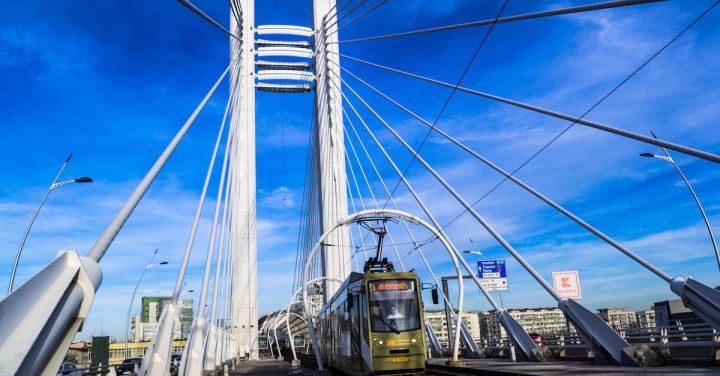Electric trains have revolutionized the world of transportation, becoming the powerhouse of modern railways. These trains, powered by electricity, offer numerous advantages over their traditional diesel counterparts. From environmental benefits to enhanced performance and efficiency, electric trains are leading the way towards a sustainable and technologically advanced future.
One of the most significant advantages of electric trains is their eco-friendliness. Unlike diesel trains, which emit harmful pollutants such as nitrogen oxide and particulate matter, electric trains produce zero emissions at the point of use. This makes them a much cleaner and greener alternative, contributing to improved air quality and reduced carbon footprint. With the increasing focus on sustainability and reducing greenhouse gas emissions, electric trains play a vital role in achieving these environmental goals.
In addition to being environmentally friendly, electric trains also offer superior performance and efficiency. Thanks to their electric motors, these trains provide smooth and quiet operation, resulting in a more comfortable and enjoyable journey for passengers. Electric trains have excellent acceleration capabilities, allowing them to reach high speeds quickly. This not only reduces travel time but also improves overall punctuality and reliability of train services.
The efficiency of electric trains is further enhanced by regenerative braking. When the brakes are applied, the electric motors act as generators, converting the kinetic energy of the train into electrical energy. This energy is then fed back into the power supply grid, reducing energy wastage and increasing overall efficiency. This regenerative braking system not only saves energy but also reduces wear and tear on the braking system, resulting in lower maintenance costs.
Electric trains also offer significant cost savings in the long run. While the initial investment in electrifying railway infrastructure may be high, the operational costs of electric trains are much lower compared to diesel trains. Electric trains require less maintenance and have fewer moving parts, reducing the need for frequent repairs and replacements. Additionally, the cost of electricity is generally lower than the cost of diesel fuel, resulting in substantial savings in operational expenses.
Furthermore, electric trains provide a smoother and more comfortable ride for passengers. The electric motors produce less vibration and noise compared to diesel engines, creating a quieter and more relaxing environment inside the train. This makes electric trains an ideal choice for urban areas, where noise pollution is a significant concern.
The electrification of railways is a global trend, with many countries investing in expanding their electric train networks. China, for example, has the largest high-speed electric train network in the world, covering thousands of kilometers. European countries, such as Germany and France, also have extensive electric train systems, connecting major cities and providing efficient transportation options for millions of people.
In conclusion, electric trains have emerged as the powerhouse of modern railways, offering numerous advantages over traditional diesel trains. Their eco-friendliness, superior performance, efficiency, cost savings, and passenger comfort make them the preferred choice for transportation authorities and passengers alike. As the world continues to prioritize sustainability and technological advancements, electric trains will play a pivotal role in shaping the future of rail transportation.
